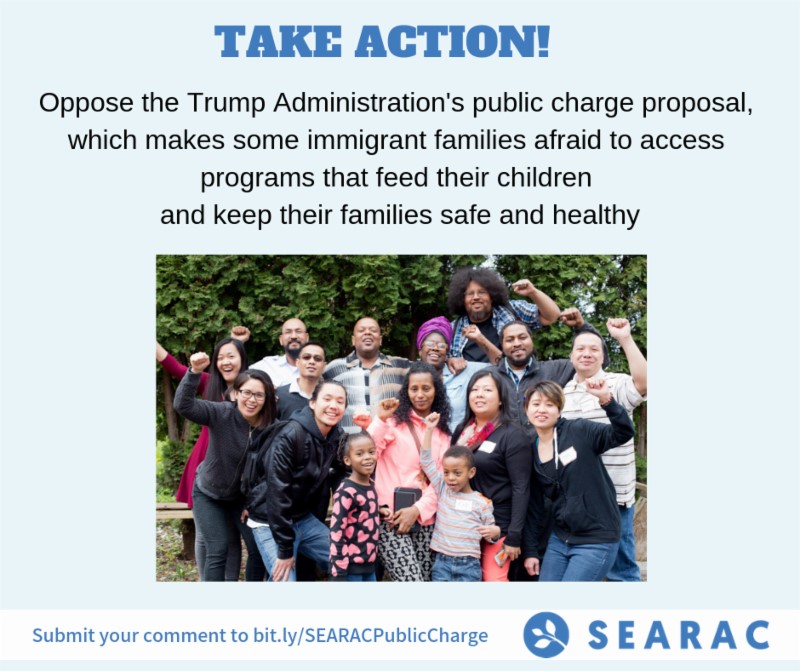The Trump Administration has proposed broadening the set of government services considered when determining whether an individual is a ‘public charge,’ a term applied to someone who is likely to rely on government assistance for support. If a person is considered a public charge, they may be denied a green card.
Seniors and parents of U.S. citizens are a significant, and growing, segment of immigrants to the U.S. and are critical to the well-being of intergenerational families. Between 1990 and 2010, the number of immigrants age 65 and older grew from 2.7 million to nearly 5 million. The number of parents of U.S. citizens who have been admitted as legal permanent residents more than tripled between 1994 and 2016. In making it harder for older adults to immigrate, the proposed rule ignores the critical roles many grandparents play in caring for their grandchildren and other family members.
The Southeast Asia Resource Action Center (SEARAC) recently launched a campaign to collect 1,000 comments letting the Trump Administration know that our communities and allies oppose its latest attack on immigrant and refugee communities. We ask that you join us in submitting a comment, and share this blog with five of your contacts. The deadline for submitting comments to the Department of Homeland Security is December 10, 2018.
To address the complexities and confusion around this proposal, SEARAC has put together a toolkit explaining the impact of the rule on immigrant communities, in general, and Southeast Asian Americans in particular. The toolkit also contains a helpful list of frequently asked questions, in addition to sample language and social media images you can use to help spread word on our campaign.
Please help us reach our goal!
The opinions expressed in this article are those of the author and do not necessarily reflect those of the Diverse Elders Coalition.

